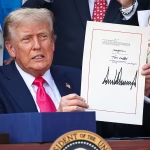SoftBank's $5.8 Billion Nvidia Exit Sparks AI Bubble Fears: Stock Dives 2% in Shocking Sell-Off
Nvidia shares dropped more than 2% in early trading today, dipping to about $194.60, right after SoftBank revealed it sold off its full stake in the AI powerhouse. This unexpected move hits as SoftBank ramps up its bets on artificial intelligence, with plans for a whopping $30 billion infusion into ventures like OpenAI. The news, fresh from SoftBank's latest earnings call, sends ripples through the tech world, reminding everyone how quickly fortunes shift in the race for AI dominance.
The Sudden Sell-Off That Caught Wall Street Off Guard
SoftBank unloaded 32.1 million Nvidia shares last October, cashing out $5.83 billion in total. The Japanese giant also trimmed its T-Mobile holdings by 40.2 million shares, pulling in another $9.17 billion. CFO Yoshimitsu Goto laid it out plainly during the investor update, saying the sales clear the deck for bolder plays. "Our OpenAI commitment is already huge," Goto noted. "To scale it even further, we must sell select assets and unlock fresh capital." This portfolio pivot feels like a high-wire act, balancing past wins against tomorrow's moonshots, and it leaves investors wondering if more shake-ups loom.

The OpenAI and Nvidia logos side by side, marking their $100 billion alliance to build next-generation AI infrastructure.
SoftBank's All-In Push on the AI Frontier
SoftBank's strategy screams ambition in an era where AI reshapes everything from smartphones to self-driving cars. The company leads the $500 billion Stargate Project, teaming up with OpenAI, Oracle, and MGX to erect massive AI data centers across the U.S. It also clings to key positions in Taiwan Semiconductor and Oracle, while snapping up ABB's robotics arm for $5.4 billion to fuse AI with real-world machines. These steps position SoftBank at the heart of the AI surge, but they demand serious cash. According to analysis reviewed by Finance Monthly, this aggressive funding chase underscores how even giants must hustle to stay ahead in tech's breakneck evolution.
Echoes of a Legendary Missed Bet
The SoftBank-Nvidia tale carries the weight of what-ifs that sting in boardrooms worldwide. Back in 2017, SoftBank poured about $4 billion into Nvidia, spotting the spark of AI chips early. It cashed out in 2019 for a tidy $3.3 billion gain, only for Nvidia's value to explode into the stratosphere. Founder Masayoshi Son has owned up to the regret, calling it one of his biggest fish that slipped away, potentially worth over $150 billion today. Son even floated buying Nvidia whole in 2016, post-Arm acquisition, chatting it over with CEO Jensen Huang. That chat fizzled, but it paints a vivid picture of visionaries dancing around deals that could rewrite histories. The human side here tugs at you, the raw thrill and ache of spotting genius too soon or too late.
Unpacking Portfolio Rebalancing: The Quiet Power Move Fueling AI's Next Chapter
In the whirlwind of stock sales and billion-dollar bets, SoftBank's choice boils down to a timeless finance tactic called portfolio rebalancing. Think of it as tidying a closet bursting with winners, selling off crowded shelves to make room for fresh finds. Companies like SoftBank do this to lock in gains from hot performers like Nvidia while freeing cash for under-the-radar gems in AI. It's not panic selling, but a calculated shift to keep momentum alive amid soaring demands.
Everyday folks should tune in because this ripple touches your daily life more than you might guess. As firms pour liquidity into AI, it speeds up innovations that cut costs for services you rely on, from smarter shopping apps that save you hours to voice assistants that feel almost human. Yet volatility from these big swings can nudge up prices on gadgets or delay drops in streaming fees if supply chains hiccup. The global AI market, projected to balloon to $1.8 trillion by 2030 per recent industry forecasts, amplifies this, promising cheaper tools but with bumps along the way.
Here's a fresh insight to act on now: Beyond just tracking Nvidia's dip, scan your own savings or 401(k) for over-reliance on single sectors like tech, which make up 30% of many portfolios today. Aim to rebalance by shifting 5% to 10% into diversified AI exchange-traded funds, such as those tracking broad indices beyond chipmakers. This hedges against one-off sales like SoftBank's while capturing the sector's 27% annual growth rate, turning market drama into personal edge without chasing headlines.
SoftBank’s Silicon Valley headquarters, a hub for managing its multibillion-dollar investments in AI, robotics, and leading tech companies like Nvidia.
Ripples in the Market and the Human Stakes at Play
Nvidia's shares wobbled open but hold firm against its AI-fueled climb, underscoring the chip leader's unbreakable grip on data centers and machine learning. Wall Street pros see little threat to Nvidia's core strength. "The sale of $5.8 billion in Nvidia shares highlights the company’s access to liquidity as it continues its AI investment program," says Kirk Boodry, a Bloomberg Intelligence analyst. His take eases nerves, framing this as SoftBank's liquidity grab rather than a Nvidia verdict. Still, the dip stings in a year where Nvidia touched $4 trillion and $5 trillion valuations, firsts in market history.
At the helm stand titans whose stories add heart to the numbers. Masayoshi Son, with his trail of audacious swings from Yahoo to WeWork, commands a $71.7 billion fortune that ebbs and flows with SoftBank's fortunes. Jensen Huang, Nvidia's leather-jacketed trailblazer, watches his wealth hit $167.7 billion, a leap from $3.8 billion in 2019 that mirrors AI's transformative pull. Their paths cross in this saga of regrets and triumphs, fueling a quiet awe at how one conversation or sale can alter empires.
This latest twist spotlights AI's magnetic force, drawing billions and redrawing tech maps. For consumers hooked on the gadgets and apps born from it all, SoftBank's gamble signals more disruption ahead, laced with the thrill of what's next.
What Readers Are Asking Right Now
Why Did SoftBank Choose to Sell Its Entire Nvidia Stake So Suddenly?
SoftBank's decision stems from a need to fuel its exploding AI ambitions, especially a $30 billion commitment to OpenAI that demands immediate cash. By offloading its full 32.1 million Nvidia shares for $5.83 billion in October, the company unlocked liquidity without debt, allowing it to double down on projects like the Stargate AI infrastructure buildout. This isn't a snub to Nvidia's prowess but a pragmatic reshuffle, as CFO Yoshimitsu Goto emphasized in the earnings call, prioritizing fresh frontiers over holding patterns in a market where AI investments grow 27% yearly.
What Is Jensen Huang's Net Worth in 2025?
Jensen Huang's net worth stands at $167.7 billion as of November 2025, per Forbes' real-time rankings, vaulting him to the eighth-richest person globally. This surge, up over $5 billion in the past month alone, ties directly to Nvidia's dominance in AI chips, with the company's market cap crossing $5 trillion for the first time. Huang's 3.5% ownership stake has ballooned amid the AI boom, turning his early vision into one of history's greatest wealth stories, all while he steers Nvidia through the tech revolution with unflinching focus.
How Could SoftBank's Nvidia Sale Impact Everyday Tech Users?
This sale might subtly speed up AI tools reaching your pocket, as SoftBank's redirected billions accelerate developments in cheaper, smarter devices like enhanced voice assistants or personalized health apps. On the flip side, short-term market jitters could delay price cuts on Nvidia-powered gear, such as gaming rigs or laptops, keeping costs steady for another quarter. Consumers stand to gain from the broader AI push, projected to add $15.7 trillion to the global economy by 2030, but smart shoppers should watch for holiday deals amid the volatility to snag early wins.














